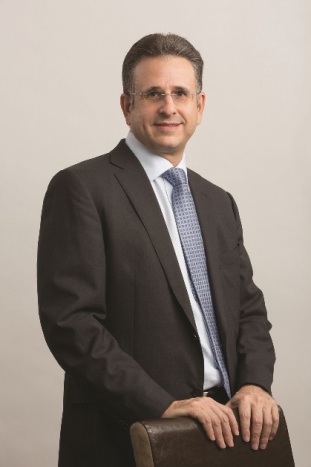In this series, we have explored how two rapidly advancing phenomena, longevity and the Fourth Industrial Revolution, are colliding with an age-old retirement savings conundrum. As this global metamorphosis occurs it is compelling a radical paradigm shift when it comes to achieving financial freedom, throughout one’s life.
Firstly, machines are becoming very smart. As they quickly take over many of the tasks previously performed by people, the unfolding workplace revolution is creating incredible efficiencies. But it is also threatening to worsen inequality as the work that provides for the incomes generated by large parts of society becomes less secure. For many, it is becoming essential to continually reskill and relearn.
Secondly, people the world over are living much longer. Catalysed by the near exponential advance of medical technologies and the science of wellness, the ageing revolution is undoubtedly a cause for celebration. But it also creating immense challenges for societies and individuals, who need to support the many more years they have “after work”, as compared to the years spent working. For most of us alive today, it is becoming essential to save significantly more.
These trends clearly create an urgent need for new solutions from the global retirement savings industry. In South Africa, they are interweaving with a complex, continually evolving socio-economic dynamic, with various idiosyncrasies that create unique local challenges.
When global trends meet a local dilemma
South Africa’s retirement savings shortfall is both well-documented, and alarming. The average replacement ratio for South Africa’s retirement industry is estimated at just 25% to 30%. This implies that, on average, people with some form of retirement savings can expect to receive the equivalent of just over a quarter of their income at retirement as a post-retirement income. People tend to seriously underestimate the impact that this implies in terms of their quality of life after work.
Reducing this shortfall is not only essential to alleviate the burden experienced by state and society – which need to step in to support those who do not have enough savings to support themselves in retirement – but it is essential to grow the economy.
However, as machines disrupt our workplaces, this problem is clearly not going to resolve itself.
And while the challenges that face our society are unquestionably vast, this shortfall is, at a fundamental level, heavily impacted by behaviours – notably that South Africans are big borrowers, which is quite the opposite from being big savers.
So severe is South Africa’s borrowing rate, that half the population is shown to have a net-negative financial position, with debt acting as a driver of inequality, according to a recent comprehensive study on wealth inequality in South Africa .
As our colleagues at Discovery Bank have pointed out, a lack of propensity for savings leaves individuals significantly exposed in both the short and long term. Reducing indebtedness and creating a savings culture in South Africa are major socio-economic challenges facing both individuals and society.
Although these financial behaviours are fuelled by the current economic environment and rising living costs, it is low levels of awareness that entrenches them.
Then comes the ageing phenomenon.

“Globally, the share of the population aged 65 years or over is expected to increase from 9.3% in 2020 to around 16.0% in 2050,” according to the UN’s 2020 World Population Ageing report.
By comparison, South Africa has a relatively young population. Only 5.4% of South Africans were aged over 65 in 2019, as compared to a global average of 9.1%. Yet, as all regions in the world will follow the “unprecedented and sustained change in the age structure of the global population”, this proportion will undoubtedly increase markedly in the years to come.
This ageing revolution, abroad and at home, will have a “profound effect” on what the UN terms the support ratio – the number of people of working age, as compared to those aged 65 years or older.
In a country such as South Africa, which has one of the highest levels of unemployment in the world, especially among the youth, as well as one of, if not the, highest levels of inequality in the world, this growing support ratio, layered as it is on top of an already concerning replacement ratio, has profound implications.
The plight of the sandwich generation
At least once a year, when we do inductions of our new staff, we present to them on the need to start saving for their retirements, and to start saving early. Invariably, however, we are met with the response from many of our new recruits that they simply do not have the extra money available to put away. Aside from the rising costs of living, one reason often put forward for this is the pressures faced by those who need to support their families and communities in retirement. In South Africa, at least 28% of employed people face this pressure.
Analysis from Discovery Invest Technical Marketing reveals that whatever you don’t save for retirement will cost your children 6.7 times more once you are in retirement. In other words, for every rand you don’t save for retirement now, your children may have to pay up to R6.70 later, in real terms, to cover the financial shortfall. This is due to the impact of missing out on investment growth in the years leading to retirement.
Whatever you don’t save for retirement will cost your children 6.7 times more once you are in retirement.
Clearly, this creates a knock-on effect: when people don’t save enough, their families take a massively disproportionate toll in the long term, and the cycle not only repeats but it exacerbates.
Old problems colliding with modern trends need new solutions
The stubbornness of South Africa’s retirement savings conundrum – which has remained unchanged for over a decade – is clear evidence that the solutions provided by our retirement savings industry aren’t solving the problem. As the rapid global metamorphosis occurring in the wake of the ageing, and workplace revolutions collide with a complex and unique local context, South Africa’s retirement savings conundrum is set to worsen.

But because it comes down to individuals’ choices, there’s hope. A powerful behavioural insight reveals that by rewarding positive savings behaviour, people can change. The somewhat bleak outlook of the average employee can be transformed.
Our analysis at Discovery Invest and Discovery Bank shows that small behaviour changes not only improve a client’s retirement outcome, but also have the potential to erase the inter-generational debt cycle. These behavioural insights lie at the heart of our shared-value investments model, deployed by our teams at Discovery Invest and Employee Benefits, who are working to encourage the good long-term investing behaviours that a healthy bank balance affords.
Through shared value, which creates a positive, economically expansive, feedback loop between our clients, our businesses and our society, Discovery is actively challenging a defunct status quo as it seeks to tackle some of our society’s most pressing, behaviourally driven, challenges.
Read Part 2 and Part 1 of the series.













